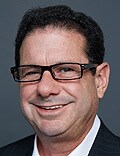Several years ago, I lost a lot of respect for the American Board of Internal Medicine (ABIM). My disillusionment was heralded by a screeching metal cart loaded with patient records that rolled through my office door. Our practice manager parked the behemoth beside my desk with a flippant "Good luck!" as a reminder that my MOC (maintenance of certification) activity was due. That evening and for many more, I sat alone verifying, for example, that my patients with atrial fibrillation were receiving appropriate anticoagulation.
My 10-year recertification in cardiology was also due soon. My daughters were finishing middle and high school at the time. The ABIM soon morphed from an educational opportunity into a jealous gargoyle. It sat crouched on my shoulder during both graduations, the shopping for prom dresses, and the campus tours.
In 2015, Kurt Eichenwald, a senior writer at Newsweek whose wife is a physician, published a scathing opinion piece on the ABIM and American Board of Medical Specialties (ABMS). He wrote that physicians were being tasked with increasingly more expensive and time-consuming MOC activities despite a lack of evidence that these improved patient outcomes. He interpreted the increasing requirements as efforts by the ABIM to fend off bankruptcy, noting that despite losses of $40 million from 2008 to 2013, they continued to pay out $125.7 million in salaries—accusations the ABIM refuted.
I remained boarded in cardiology, but in 2015, I happily joined the newly minted and far less cumbersome National Board of Physicians and Surgeons (NBPAS) for recertification. In 2018 the Department of Justice antitrust division bolstered the goals of the NBPAS by ruling that the benefit of competition in a society founded on free enterprise should extend to maintenance of physician certification. In July 2022, the NBPAS was deemed a "Designated Equivalent Source Agency" by the Joint Commission.
NBPAS requirements are simple. You must have an active unrestricted state license and have completed an initial ABIM certification plus 50 hours of AMA PRA Category 1 continuing medical education (CME) credits over a 2-year period (or 100 hours if ABMS certification has lapsed). The cost is $180 for 2 years of credentialing. NBPAS allows physicians to choose the CME activities that best serve their practice. To complete my application, I simply scrolled through my iPhone for screen shots of prior CME certificates and uploaded them to the site. It was that easy.
Compare that with the ABIM-American College of Cardiology (ACC) MOC pathway. Despite two emails and a phone call, I'm still not certain where I stand. In 2021, I purchased ACCSAP, the ACC self-assessment program, for $1500, which covers certification requirements for up to 5 years. I thought I was on target as I've been following the internal medicine longitudinal assessment (LKA) pathway. Then I received a text notification that my "ACC CMP in CVD" was now available. I wasn't familiar with "CMP" so I googled it; it stands for collaborative maintenance pathway.
But despite its simplicity, the NBPAS isn't yet recognized by all hospitals—as I found out when I began part-time PRN work. Despite having a ton of CME credits, I still had to resume participation in the ABIM's MOC pathway or sit for cardiology boards next year. I've set aside a week in December to complete my internal medicine LKA questions and ACC CMP activities.
Admittedly, the course content is excellent, leading me to wonder if I had I been too hasty in dismissing the ABIM.

Dr Richard Baron
Richard Baron, MD, President and CEO of the ABIM, responded by phone quickly and kindly to my queries. I started with the hard questions about revenue loss and increasing fail rates as described in the Newsweek article. "It was never the case that we had lost $40 million dollars … or that we were deliberately lowering our pass rates because they were on the verge of financial collapse," he said, reiterating comments he made to Medscape at the time about the Newsweek article. "The whole way we define the passing standard on the exam, we are very transparent about it and it has nothing to do with what our finances are."
When I related my disillusionment with those useless MOC pathway activities, he noted that in 2015 they sent an email to all ABIM-certified doctors admitting that they got it wrong. "We realized that it was burdening people with a lot of busy work and the juice wasn't worth the squeeze." He pointed to many changes since then. "If you earn certain kinds of CME that have been accredited for MOC, it's frictionless," he said.
When I asked why physicians can't just choose their own CME, Baron said that the ABIM's CME and LKA content is rigorous and superior to what physicians might choose on their own. He mentioned the Dunning-Kruger effect, in which we humans overestimate what we know. Because of that, Dr. Baron contends that doctors will choose to study pathways that are easier.
Baron cited a study in the middle of the opioid epidemic, when the recommendations for opioid prescribing were changed, as evidence that the MOC program generates meaningful differences in clinical outcome. "We went from pain as a fifth vital sign and being very liberal in the use of narcotics to recognizing we were contributing to a national opioid epidemic as a profession. People in the MOC program were much more likely to change their opioid prescribing than people not in the MOC program," he said.
But the NBPAS has a differing opinion.

Dr Paul Teirstein
When I reached out to Paul Teirstein, MD, chairman of the NBPAS, he countered Baron's claim of superiority for the ABIM pathway. The NBPAS believes that participating in relevant CME is more meaningful than the LKA, which entails answering at least 100 open-book multiple-choice questions each year. Teirstein noted that multiple-choice questions do not measure deep learning skills and that the questions may be out of date, or based on guidelines that change. The "correct" answer is often controversial, he said, and, perhaps most important, the questions "often do not relate to a physician's individualized practice given the highly specialized nature of medicine today."
Teirstein believes that requiring physicians to participate in MOC provides ABIM with a financial conflict of interest because approximately half of their $60 million budget comes from MOC, he said. "The NBPAS has an intentionally small budget, and none of the physician leaders receive a salary," he added. Baron countered that if you are going to have substance behind a credential, you need substantive processes behind that credential. "That's what ABIM does with the fees," he said. He also noted that they don't accept industry funding and that hiring quality personnel requires a competitive salary.
Despite substantial progress, the NBPAS membership is not an independent path to recertification. Initial ABIM certification is required. In addition, there are skeptics. Westby Fisher, MD, an electrophysiologist and a longtime critic of the ABIM, said of the NBPAS, "Many insurers still won't recognize NBPAS recertification." He related that his own hospital's lawyer told him that they would accept NBPAS accreditation only if he could provide a letter from the major insurers stating that they recognize the NBPAS.
According to the NBPAS website, many hospitals in nearly 40 states now accept their credentialing. But most of the 200,000 ABIM-certified physicians haven't yet jumped on board with the NBPAS.
Having a choice in credentialing pathways is good and necessary. Every state should recognize both the ABIM and the NBPAS for recredentialing. Then, the choice between those two pathways would be ours and only ours to make.
Until then, I will continue this hybrid format and support Teirstein and the NBPAS board members who give freely of their time fighting for a better way of life for physicians.
While I believe we physicians are mature enough to choose the CME that works best for our practices, I have a deeper appreciation for Baron. I believe his intentions are good, but I am disappointed that I have no choice but to continue receiving those annoying LKA and ACCSAP notifications that yet something else is due.
Unfortunately for most practicing physicians, the certainties in life will continue to include death, taxes, and the aggravating, seemingly never-ending kill joy that is ABIM recertification. Someday soon, I hope we can change that.
Melissa Walton-Shirley, MD, is a native Kentuckian who retired from full-time invasive cardiology. She enjoys locums work in Montana and is a champion of physician rights and patient safety. In addition to opinion writing, she enjoys spending time with her husband and daughters, and sidelines as a backing vocalist for local rock bands.
Medscape's editor-in-chief, Eric Topol, MD, is on the voluntary board of NBPAS. He had no input into or influence on this commentary.
Follow Melissa Walton-Shirley on Twitter
Follow theheart.org | Medscape Cardiology on Twitter
Follow Medscape on Facebook, Twitter, Instagram, and YouTube
© 2022 WebMD, LLC
Any views expressed above are the author's own and do not necessarily reflect the views of WebMD or Medscape.
Cite this: Melissa Walton-Shirley. ABIM or NBPAS Recredentialing: Do We Really Have a Choice? - Medscape - Oct 28, 2022.





Comments